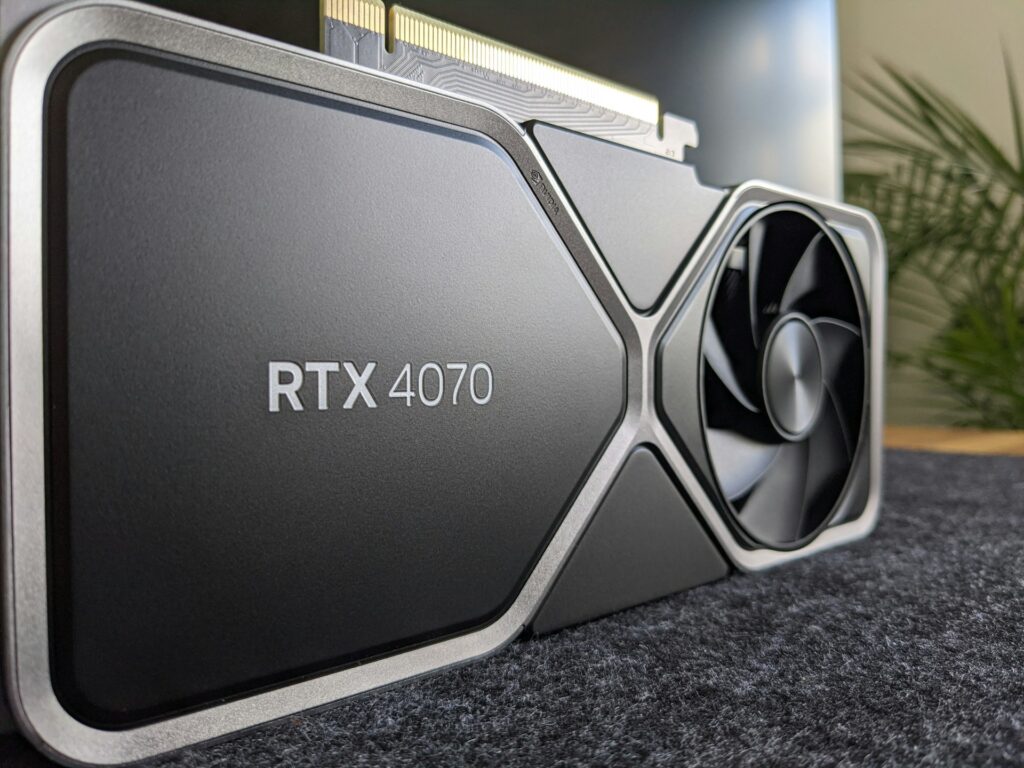Computers use special chips called GPUs to help with artificial intelligence (AI). GPUs are good at doing many calculations quickly. This makes them useful for AI tasks like recognizing images or understanding language.

News Reading in Levels
GPUs are very important for artificial intelligence (AI). They can do lots of math problems very fast. This helps AI programs like image recognition and language understanding.
There are two main types of GPUs. Some are separate chips in desktop computers. Others are combined with the CPU in laptops and game consoles.
The CPU tells the GPU what to do. GPUs were first made for graphics, but now they also help with AI tasks.
recognition (noun) – identifying something
understanding (noun) – comprehending the meaning
separate (adjective) – distinct, not combined
combined (adjective) – joined together
console (noun) – a gaming system
While GPUs excel at AI computations, they aren’t optimized for it. Companies like AMD and NVIDIA have adapted traditional GPUs to better handle machine learning algorithms by supporting efficient data formats.
Other firms have developed specialized AI accelerators from scratch, like Google’s Tensor Processing Units, designed explicitly for deep neural networks. These accelerators typically have more memory than GPUs, crucial for training large AI models.
To further boost performance, multiple accelerators can be pooled into a supercomputer. Alternatively, companies like Cerebras produce massive single-chip accelerators.
optimized (adjective) – made as effective as possible
accelerators (noun) – hardware that speeds up computation
neural networks (noun) – AI models inspired by the human brain
pooled (verb) – combined into one shared resource
massive (adjective) – extremely large in size or scale
While GPUs have proven indispensable for AI, silicon vendors are exploring increasingly specialized hardware. Intel and AMD CPUs now include instructions optimized for AI inference tasks, streamlining model deployment.
However, training cutting-edge models like ChatGPT necessitates massive computational power from GPU-like accelerators. Some firms, like Groq, have developed ultra-specialized chips like Language Processing Units (LPUs) tailored for large language models.
Yet, the rapid evolution of AI algorithms poses a risk – today’s custom silicon could become obsolete as new techniques emerge. Vendors must carefully weigh investment in bespoke hardware against the potential for disruption.
Ultimately, a balanced approach may prevail, with general-purpose accelerators complemented by flexible, programmable architectures that can adapt to shifting AI paradigms.
indispensable (adjective) – absolutely necessary
inference (noun) – using a pre-trained model for prediction
bespoke (adjective) – custom-made for a particular application
paradigms (noun) – distinct concepts or frameworks
complemented (verb) – combined effectively with something else
Let’s check your understanding about the news!
The Bottom Line
As AI keeps growing, GPUs and other special chips will get better at running AI programs quickly. Companies are making new chips just for AI that can handle even bigger AI models. We should expect continuous improvements in AI performance through better hardware.
